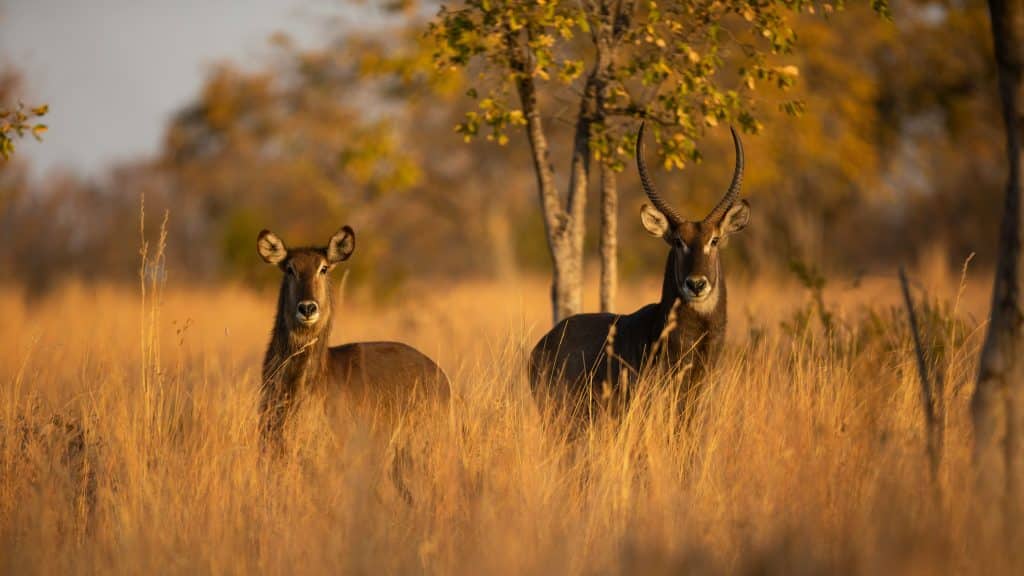A first safari holiday in Africa is a dream for many, a journey into the heart of the wild that promises unparalleled adventure and moments that will stay with you forever. The prospect of visiting Africa for the first time, with its vast landscapes and iconic wildlife, is thrilling. But for the first-time visitor, a little preparation can transform a great holiday into the experience of a lifetime.
As your gateway to the magnificent Kruger National Park, we have guided countless guests on their first safari experience. Here are our essential first time safari tips to ensure your adventure is seamless, comfortable, and truly unforgettable.
Embark on Your First African Safari
Dressing for the bush: Comfort and blending in
Your safari holiday wardrobe should be about practicality and comfort. You are likely planning on enjoying spotting animals in a game viewer vehicle. These have open sides and sometimes tiered seating to provide panoramic, unobstructed views of wildlife and the surrounding landscape for an immersive experience. The key is to wear light, breathable layers in neutral, earthy tones like khaki, beige, olive, and grey. These colours help you blend in with the natural environment, enhancing your wildlife viewing opportunities.
- Layering is Key: Early mornings on a game drive vehicle can be crisp and cool, while midday can be quite warm. Dressing in layers—such as a t-shirt, a long-sleeved shirt, and a warm fleece or jacket—allows you to adapt to the changing temperatures throughout the day.
- Colours to Avoid: It’s best to avoid bright colours, which can make you highly visible to animals. It is also recommended to avoid black and navy, as these colours do not blend well into the natural environment.
- Comfortable Footwear: For game drives and relaxing around the lodge, comfortable trainers are perfect.
What to pack for your first safari holiday
Packing wisely means bringing only the essentials, and you won’t regret packing this way! Once you’ve bought gifts or keepsakes, you could easily go above luggage weight restrictions. Here’s some essential items:
- Binoculars: This is arguably one of the most important items and it’s easy to get compact versions. A good pair of binoculars (8x or 10x magnification is recommended) will transform your experience, allowing you to see the intricate details of a leopard in a distant tree or the vibrant plumage of a lilac-breasted roller.
- Camera with a zoom lens: While a smartphone is the most portable, a camera with a good zoom will help you capture those incredible wildlife moments from a respectful distance. Remember to bring extra batteries and memory cards. Be sure to read our safari photography guide too!
- Sun protection: Many travellers don’t realise they’ll be outdoors much more frequently on a safari holiday. Even though you’re not lazing beach in direct sun, you are still getting exposed to UVA and UVB rays. A wide-brimmed hat, sunglasses, and a high-SPF sunscreen are recommended to protect your skin.
- Health and safety: Pack a small first-aid kit with your personal medications. Bring it in your carry-on, in its original packaging with your prescription label attached, or bring along a copy of your prescription.
- A Good Book: Enjoy downtime between game drives to relax by the pool or in the privacy of your Kruger accommodation. A good book is the perfect companion for these tranquil moments.
On the game drive: Safari etiquette
The highlight of any safari is the game drive. These excursions, led by knowledgeable guides, are your window into the wild. To make the most of it, a little safari etiquette for first-timers goes a long way.
- Listen to your guide: Your guide is an expert on the bush. Their knowledge is invaluable for spotting animals and understanding their behaviour. Always follow their instructions, especially regarding safety. They are in communication with other guides and have the best chance of locating incredible sightings.
- Patience is a virtue: Wildlife operates on its own schedule. Some drives will be action-packed, while others might be quieter. Be patient, and soak in the entire environment—the sounds, the smells, and the stunning landscapes.
- Keep Your voice down: To avoid startling animals, it’s best to speak in a soft voice. The quieter you are, the more likely wildlife is to remain undisturbed and behave naturally.
- Stay in the vehicle: For your safety, never get out of the safari vehicle unless you are in a designated area and your guide has given you permission.
If you’d like to explore the park at your own pace, read our article on self-drive safari tips for first-time visitors.
Embrace the experience
The surprises of a first safari—whether it’s the roar of a lion or the silence of the bush—are what transform it into a memory of a lifetime. The unexpected is part of the charm. It’s a joyful invitation to step out of routine and into a world where nature leads the way, reminding us how exhilarating it can be to simply observe, listen, and be present.
Your first visit to Africa will be filled with moments of awe. By following these first-time safari tips, you are setting the stage for an adventure that is as comfortable as it is exhilarating, leaving you with memories to cherish for a lifetime. If Southern Africa is calling, take a closer look at our Kruger Park accommodation options—you might find yourself on the edge of the wild sooner than you think.

